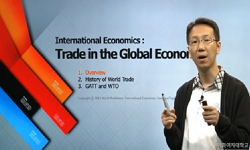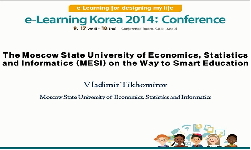This dissertation examines the puzzle of the persistence, within democratic countries, of subnational regions with authoritarian characteristics. In countries as diverse as India, Brazil, the Philippines, Mexico, Argentina and the United States durin...
http://chineseinput.net/에서 pinyin(병음)방식으로 중국어를 변환할 수 있습니다.
변환된 중국어를 복사하여 사용하시면 됩니다.
- 中文 을 입력하시려면 zhongwen을 입력하시고 space를누르시면됩니다.
- 北京 을 입력하시려면 beijing을 입력하시고 space를 누르시면 됩니다.
https://www.riss.kr/link?id=T13050013
- 저자
-
발행사항
[S.l.]: Yale University 2012
-
학위수여대학
Yale University
-
수여연도
2012
-
작성언어
영어
- 주제어
-
학위
Ph.D.
-
페이지수
172 p.
-
지도교수/심사위원
Adviser: Kenneth Scheve.
-
0
상세조회 -
0
다운로드
부가정보
다국어 초록 (Multilingual Abstract)
This dissertation examines the puzzle of the persistence, within democratic countries, of subnational regions with authoritarian characteristics. In countries as diverse as India, Brazil, the Philippines, Mexico, Argentina and the United States during the Jim Crow era, regimes with authoritarian characteristics successfully maintain control over subnational units despite national democratization. Thus, enduring subnational authoritarian enclaves result in co-nationals with varying political rights--a strong normative reason to worry about political "regimes" in units smaller than the nation. Often these low-democracy regions where authoritarian practices remain are governed by a different political faction than that of the democratic polity's national government. The very existence of subnational authoritarian regions is puzzling. Even more puzzling is a national democratic government, which once fought authoritarian abuse, appearing to be unwilling or unable to act against these regional autocrats.
I propose a political explanation for the endurance of subnational regions that retain authoritarian characteristics. I develop a formal model of strategic interaction between the central government and a regional government in the controlled by an opposing faction or party. I find an equilibrium in which the central government needs policy support while a region governed by an opposing party is willing to offer support to the central government. It can absorb the costs incurred for deviating from its own national party's position in exchange for lower levels of central government intervention in the region. I also show that, contrary to the prediction of a version of minimal-winning coalition theory, highly autocratic regions are more likely to support the central government because they can cope with the costs imposed by their own faction and make a more attractive deal for the central government. The model also illustrates how regions governed by the opposition but supporting the central government are more likely to experience lower levels of central government intervention, thus perpetuating the existence of subnational regions with a high level of authoritarian practices.
To test the theory, I rely on a multimethod approach using both quantitative and qualitative evidence taken from cases in Mexico. Using a panel dataset of all 32 states in Mexico with a time frame covering three presidential administrations, I demonstrate that opposition-controlled regions with low levels of democracy are more likely to support the central government in policy decisions despite their national party's position. In addition, regions that defect from party lines suffer less central government intervention during the next electoral cycle. I complement the quantitative evidence with in-depth case studies of four Mexican states: Puebla, Oaxaca, Chihuahua and Veracruz. I make use of archival materials, interviews with political elites, and analyses of each state's political history to trace within-region variation over time and conduct cross-regional comparisons by analyzing the 2003 fiscal reform attempt and the subsequent regional elections of 2004. I present evidence to support the assumptions of the model as well as to illustrate the mechanism by which the central government and the regional autocrat come to peaceful coexistence. Finally I offer evidence indicating that the mechanism is at work in other Latin American countries like Argentina and explore how the theory can be used to explain cross-factional alliances within parties.










